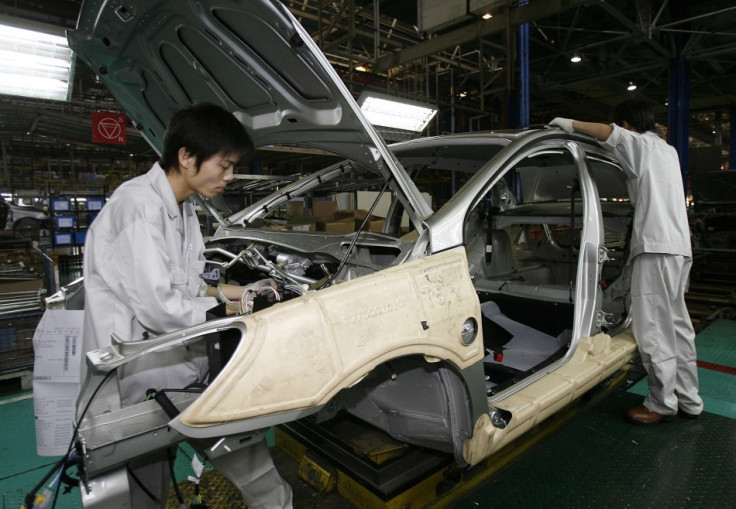Asian stock markets tumble on weak China data

Asia-Pacific shares began August lower after a survey showed Chinese manufacturing activity shrank more than initially estimated in July.
The Manufacturing Purchasing Managers' Index (PMI) from Caixin and Markit Economics was revised down to 47.8 from 48.2.
That represents the lowest reading since July 2013 and the fifth straight month of contraction in the sector, denoted by a score below 50.
Mainland China's benchmark Shanghai Composite index dived 2.4% to 3,574.80 points on the back of the release, while Hong Kong's Hang Seng dropped 1% at 24,372.64.
"Investors are anticipating further policy support [from Beijing], given sluggish economic outlook in the second half of this year," Li Lei, an analyst at China Minzu Securities, told the Wall Street Journal.
Risk sentiment was also dampened by the tepid US wage growth figures released at the end of last week, which showed labour costs in the world's largest economy recorded their smallest increase in 33 years in the second quarter.
In Tokyo, the Nikkei index was down by 0.4% at 20,504.46 even though Japan's manufacturing PMI score for July was confirmed to have hit a five-month high of 51.2.
"According to anecdotal evidence, stronger demand conditions and the securing of new clients led to the latest expansion in production," said Markit economist Amy Brownbill.
Meanwhile, Seoul's KOSPI benchmark was down by 1.1% at 2,007.92 points despite data showing the country's current account, the widest measure of cross-border trade, posted a surplus of $12.2bn (£7.8bn, €11.1bn) in June.
For the first six months of the year as a whole, the current account surplus was at $52.4bn, up 33% from the same period in 2014.
Australian shares also fell in line with the sell-off in the rest of the region, with Sydney's S&P/ASX 200 index down by 0.5% at 5,671.19.
© Copyright IBTimes 2025. All rights reserved.




















